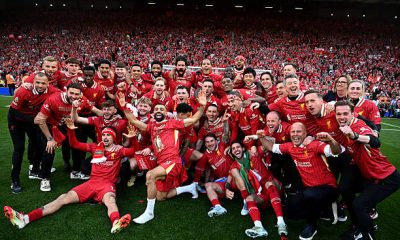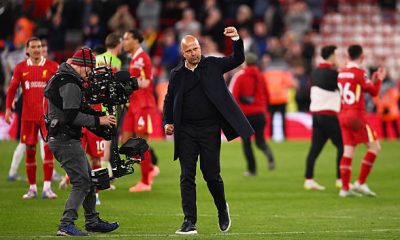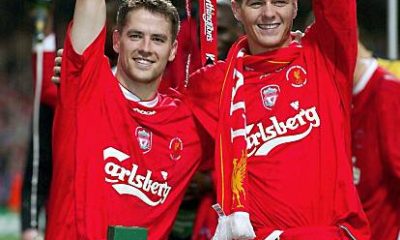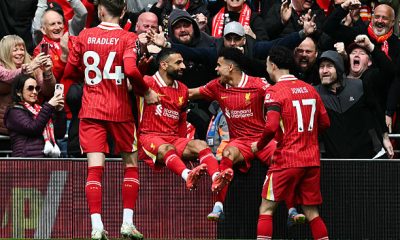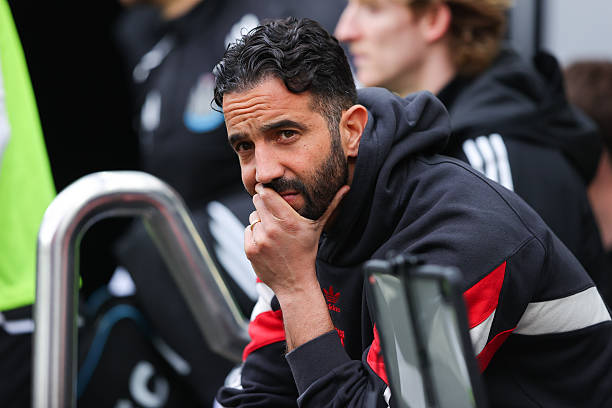
“I understand criticism, but I don’t care,” says Ruben Amorim, Manchester United’s manager, in a defiant statement that reflects his determination in the face of mounting pressure. Ruben’s leadership at Manchester United has been scrutinized, but despite facing intense criticism, the manager remains resolute. His words highlight the mental fortitude he brings to his role, but they also underline the significant challenges that continue to shape his tenure at the club. This article explores the five key issues that could impact Ruben’s future at Manchester United as he navigates squad limitations, tactical struggles, and the high expectations placed upon him.
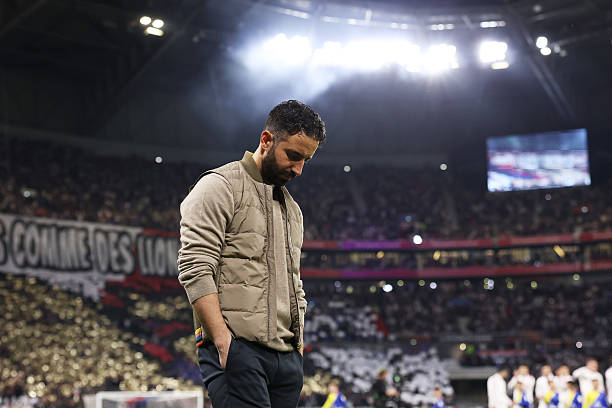
5. Amorim’s Approach to Criticism: Handling the Pressure
Ruben’s comment, “I understand criticism but I don’t care,” is a testament to his strong mindset. Despite the significant criticism he has faced since taking over at Manchester United, Amorim remains unapologetically confident in his methods. His resilience is evident in his press conferences, where he repeatedly emphasizes that he won’t let negative feedback dictate his approach.
While some may see this as a sign of strength, others argue that Amorim’s defiant stance could become detrimental if results continue to underperform. Football fans and the media often call for managers to adapt or face the consequences, but Ruben’s response suggests that he’s unwilling to bend to external pressure. This attitude will play a crucial role in his long-term success, but it may also hinder his ability to work cohesively with the club’s stakeholders if the situation doesn’t improve.
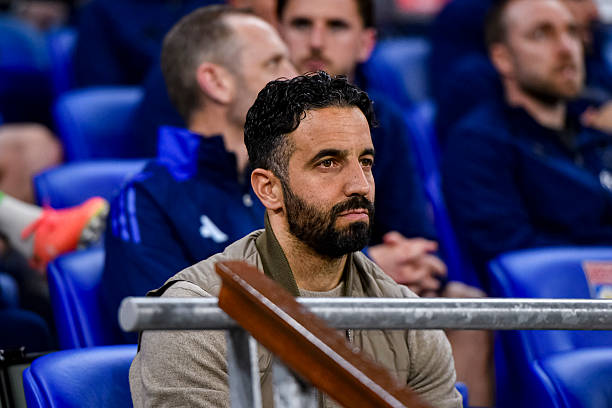
4. Squad Depth and Rotation Issues Affecting Amorim’s Tactics
One of the most significant obstacles for Amorim has been Manchester United’s lack of squad depth. Despite managing a top-tier club, Amorim has frequently pointed out the challenges he faces when trying to rotate players and keep the team fresh for both domestic and European commitments. “We don’t have a big enough squad to rotate players as much as I would like,” he stated in a recent interview.
This squad limitation has led to overreliance on key players, resulting in fatigue and injuries that have negatively impacted the team’s performance. The inability to rotate effectively has hindered Ruben’s tactical flexibility, forcing him to rely on a small group of players in crucial matches. This issue is particularly evident during congested fixture schedules, where fatigue and lack of fresh legs have led to disappointing results.
For a club of Manchester United’s stature, squad depth is essential for competing at the highest levels. Ruben must find a way to address this limitation by either improving squad balance or working with the club’s board to secure reinforcements.
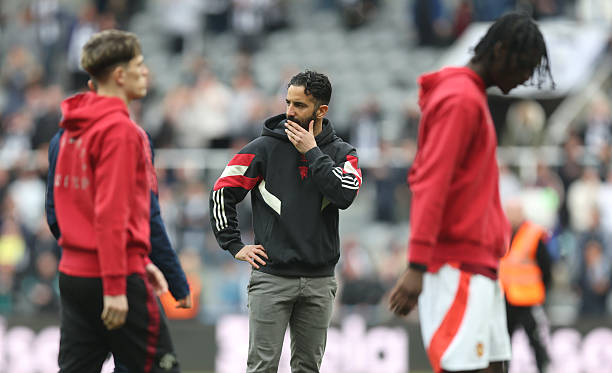
3. Tactical Inconsistencies Under Amorim’s Management
Ruben’s tactical philosophy at Manchester United has been under intense scrutiny. While his commitment to high-pressing, attacking football has earned him respect in some quarters, the results have been inconsistent. United has shown flashes of brilliance, but defensive vulnerabilities continue to undermine their efforts.
In high-profile matches, Ruben’s strategy has often been exposed, with the team conceding goals due to lapses in concentration and defensive organization. Despite his attempts to implement an aggressive style of play, Ruben’s tactics have struggled to produce results against top-six opponents. Recent defeats to rivals such as Manchester City and Liverpool have put further pressure on the manager, questioning his ability to handle high-pressure situations.
Amorim’s inability to find a balance between attack and defense remains one of the most critical challenges of his tenure. His tactical decisions in key moments will be decisive in determining whether he can lead United back to title contention.
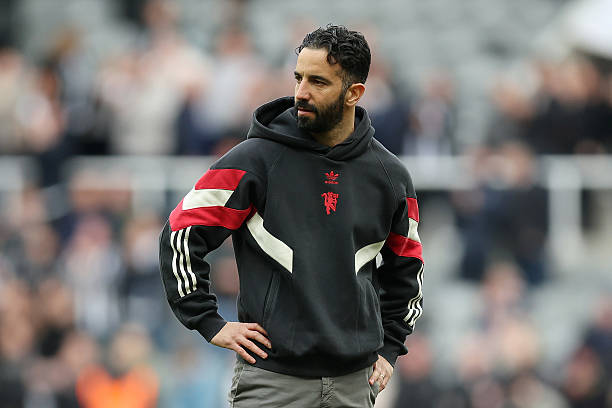
2. The Pressure to Succeed in High-Profile Matches
Amorim’s tenure at Manchester United has been characterized by high expectations. The club’s fans and board are desperate for success after years without a major trophy, and the pressure to deliver results in big matches is immense. Amorim has faced significant criticism for failing to perform in crucial fixtures, particularly against the top teams in the Premier League.
The defeat to Liverpool earlier this season, where United fell apart defensively, and the loss to Manchester City have been key moments in the manager’s reign. Despite United’s overall improvement under Amorim, these high-profile defeats have raised doubts about his ability to get the best out of his players when it matters most. In a club with the resources and ambition of Manchester United, failing to deliver in these games is a serious concern.
Amorim must prove that he can lead Manchester United to victories in these high-stakes encounters. If the results continue to falter, even his resolute mindset may not be enough to keep him in the job.
1. Amorim’s Future: Can He Turn the Ship Around?
Despite the challenges, Amorim’s future at Manchester United is not necessarily bleak. His statement, “I understand criticism but I don’t care,” shows that he has the mental toughness to continue despite the setbacks. However, the pressure on Amorim to deliver results will only increase as time goes on. The club’s board and supporters are willing to give him time, but if results continue to disappoint, his defiant stance may be tested to the limit.
For Amorim to secure his long-term future at Manchester United, he must address several key areas: squad depth, tactical balance, and delivering consistent performances in high-pressure matches. The next few months will be critical in determining whether Amorim can turn the ship around or whether the club will look for a new manager to lead them back to the top.
SUGGESTED FOR YOU
Sancho’s Goal Scored a Massive Victory: 5 Reasons This Moment Marks a Turning Point for His Career
Conclusion
Ruben Amorim’s time at Manchester United has been a turbulent journey, characterized by both setbacks and moments of promise. His refusal to let criticism affect him demonstrates his resilience, but his tactical and squad issues must be addressed if he is to secure his place as the long-term manager. The pressure to succeed in high-profile matches and improve his team’s consistency remains paramount. Amorim has the potential to turn things around, but only if he can overcome these challenges and deliver the results that Manchester United’s fans demand.


